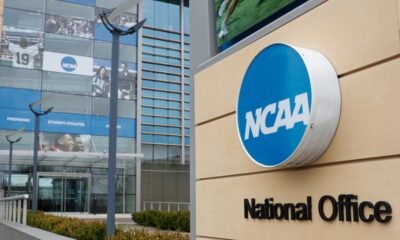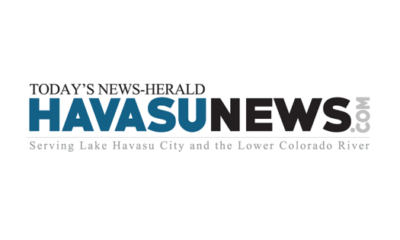Politics
Mohave Community College Student Forum Sparks Exciting Changes Ahead

A recent meeting at Mohave Community College’s Lake Havasu City campus provided a platform for students to voice their concerns. Led by Dean of Student and Community Engagement, Maria Ayon, and MCC President, Stacy Klippenstein, the hour-long session welcomed over a dozen students and faculty members. Topics ranging from professor communication to technical challenges and in-person class issues were addressed.
Klippenstein highlighted that earlier sessions occurred at the Kingman and Bullhead City campuses, as well as virtually via Zoom. Students who participated online also contributed to Thursday’s dialogue. Ayon emphasized the importance of these sessions, reassuring students that their concerns are valued: “This is one of the few sessions we have where you get a chance to pose any questions to the administration.”
The conversation took a significant turn when students inquired about the implications of Arizona State University Havasu’s recent closure. Klippenstein acknowledged the emotional impact on the community, stating, “It’s kind of fresh, and when it’s fresh, it’s emotional.” He reassured students of MCC’s commitment to support the community during this transition.
In response to demand for baccalaureate degree offerings, Klippenstein discussed the college’s plans to seek approval for four-year degrees. He indicated that the effort had been underway for over a year and emphasized the need for approval from MCC’s board and an accrediting body. Upcoming meetings will address these initiatives further.
In terms of branding, Klippenstein announced that the institution would soon be rebranded as “Mohave College.” A recent board decision supported this change, with full implementation expected by fall 2025. Input for new logo designs will be sought from faculty and students, with voting to begin in the new year.
Facility upgrades were also a key topic. Klippenstein revealed plans for a five-year facilities masterplan, aimed at enhancing campuses across the institution. This includes a healthcare program in Kingman and new technical programs in Havasu, addressing community workforce needs with specialized training. The workshop in October will provide additional insights and strategies for these upgrades.
Another point of discussion was the recent increase in tuition, the first in eight years. Klippenstein noted that a task force would evaluate potential future tuition adjustments. Meanwhile, on a positive note, he reported a 16% enrollment increase across campuses compared to the previous fall, indicating a rebound since the downturn experienced in 2020.
MCC leadership continues to seek community engagement and improvement, emphasizing student feedback in the shaping of future initiatives.


















